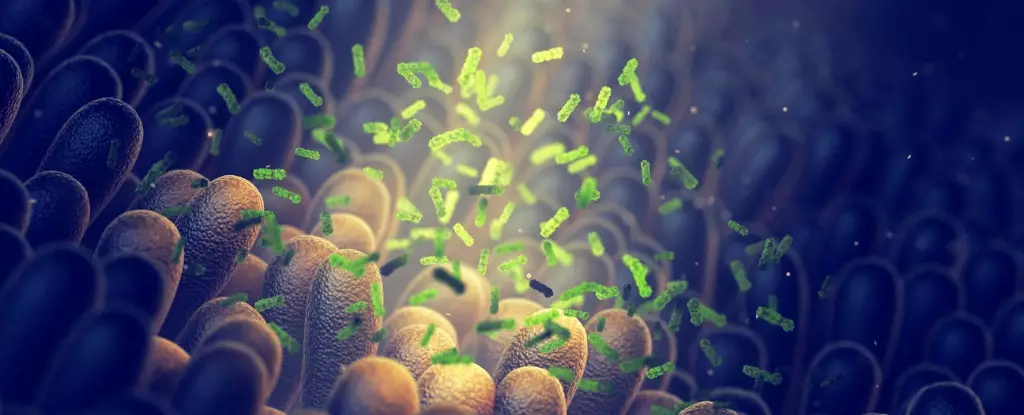In the ongoing battle against antibiotic-resistant bacteria, researchers are exploring new avenues for potential solutions. One such avenue is the human gut, which is home to a vast array of microbes. The gut microbiome, comprised of around 100 trillion microbes, has become a focal point for scientists seeking new ingredients to combat disease.
A recent study conducted in the US involved the analysis of gut microbiomes from 1,773 individuals. Researchers screened 444,054 previously identified proteins for their antibiotic potential. Out of the 78 most promising candidates synthesized and tested in the lab, an impressive 70.5 percent displayed the ability to combat microbes like bacteria. This discovery suggests that the human gut may contain a rich source of bug-fighting substances.
One of the most exciting findings from the study was the protein prevotellin-2, which demonstrated bacteria-fighting abilities comparable to the widely-used antibiotic, polymyxin B. This discovery opens up new possibilities for developing novel antimicrobial peptides derived from the human microbiome. While there is still much work to be done to transform these proteins into effective antibiotics, the initial results are highly promising.
Interestingly, the identified proteins differ from traditional antimicrobial molecules, pointing towards new avenues for developing superbug-killing agents. The unique properties of these compounds offer insights into expanding the sequence space of antimicrobials. This discovery challenges conventional notions of how antibiotics are developed and may lead to innovative approaches in the field.
The traditional method of discovering antibiotics from the environment is time-consuming and labor-intensive. By focusing on sources of antibiotics already present in nature, researchers like César de la Fuente and his team hope to expedite the activation of these potential drugs. Given the urgent need for new antibiotics in the face of growing antibiotic resistance, such innovative approaches are crucial in the fight against deadly infections.
The human gut is a brutal battleground where bacteria constantly evolve and adapt to survive. This hostile environment may hold the key to developing targeted drugs that can effectively combat infections. The competitive nature of the gut microbiome, where bacteria coexist and compete with one another, provides a fertile ground for discovering novel antimicrobial agents.
The exploration of the human gut microbiome for antibiotic candidates represents a promising frontier in the fight against antibiotic resistance. The unique properties of the identified proteins offer new insights into antimicrobial development and highlight the potential for groundbreaking discoveries in the field of medicine. By leveraging the vast reservoir of microbial diversity within our bodies, scientists are paving the way for a future where innovative antibiotics can combat even the most formidable superbugs.


Leave a Reply